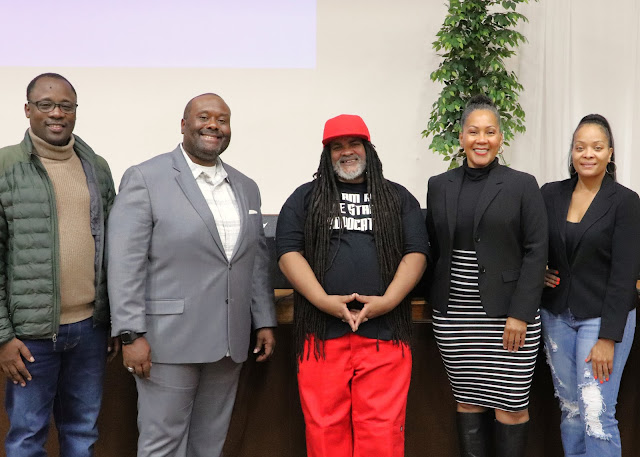FCCS Cultural Training Aims to Reverse Racism History in Child Welfare
Compared to White children, Black children are two times more likely to be referred to child welfare on concerns of abuse or neglect and two-and-a-half times more likely to have that report screened in for investigation.
This type of disproportionality is one of the reasons Franklin County Children Services is committed to identifying, developing, and training our Team FCCS on best practices in cultural competency.
FCCS requires all staff to attend at least six hours of cultural training each year. At the same time, the agency’s Organizational Health Department and Multicultural Development Team (MDT) work together throughout the year to offer to staff dozens of professional development opportunities around culture and community.
“We want to ensure that our services and practices meet the needs of the families we work with by educating our staff on an ongoing basis,” said Asia Davis, associate director of Organizational Health.
“We try to tailor our training around what’s going on in our communities - the cultural trends. We make sure our staff is aware of what’s happening around them and explore ways we can respond to situations.”
Tonia Still, MDT co-chair and Malaika Mentoring Program Manager, added, “We look to imbed this work into our practices, policies, and procedures,”
“We want people to walk away with things they can implement in their practice that will help with understanding, engaging, and building relationships with families. When we have better relationships, we can ensure families have the tools that they need to be successful.”
The current cultural mandate course is “African American Families and Child Welfare Disparities in Context: Understanding Agency and Systemic Factors.” The course delves into the history of racial discrimination and how institutional racism, organizational culture, and a disconnect with community contribute to disparate outcomes for Black families in the child welfare systems.
Led by nationally recognized child welfare researcher Dr. Reiko Boyd, the session requires staff to explore how decision-making, organizational culture, and equity of services can be tailored to reduce disparity and bring about positive outcomes for African American families considering these factors.
Cultural understanding is vital to our work, emphasized Ms. Still. “These trainings allow people to tap into their own biases and discomfort and realize that if you’re uncomfortable in this space, this is how families we serve may feel.”
Significant efforts to engage with staff and enhance our culture and climate resulted in nearly half of the entire agency attending at least one or more of the “Building A Community of Hope” speaker series last year, which focused on diversity, equity, and inclusion topics.
In addition, the agency hosted a special training late last year focused on teen violence. The Columbus Urban League's Adrian Jones, a convicted felon and former drug dealer, shed light on what youth are experiencing in the inner city and offered himself as a resource for reaching those who are involved with gangs.
“Hopefully, because of these trainings, the families can see we value them and respect their lived experiences as the experts. And our role is to enhance their skills,” added Ms. Davis.




Comments
Post a Comment